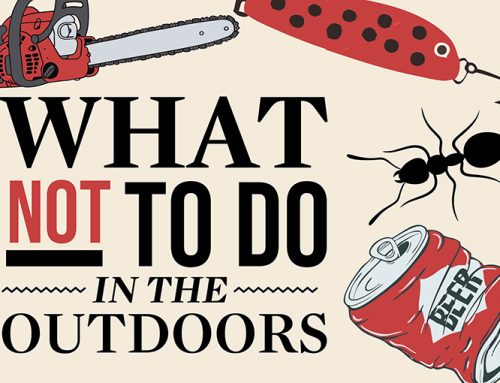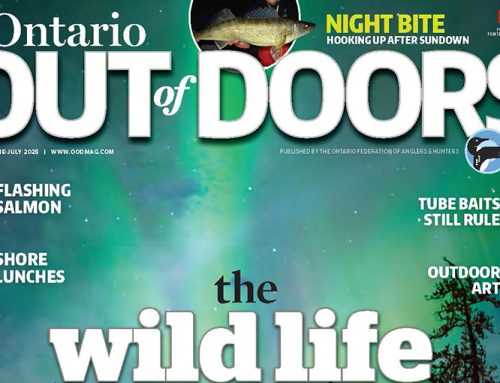
Hunters go to great lengths to cover up their stink. Some carry pee bottles, others eat foods they claim make their pee smell better, and others still insist on holding it in. Is it all necessary?
The science of pee
Urine is primarily made up of water, with a spattering of compounds and elements like urea, potassium, and ammonia. These additives allow deer and other olfactory-inclined animals, like dogs, to “read” the urine of other organisms and learn a thing or two about who it came from. This is especially important during the breeding season.
Owing to our variable diets and lifestyle choices, human urine is almost certainly a unique experience for the nose of any wild cervid. So It makes sense to conclude that our pee would be an unwelcome addition to any deer’s home, and this has been the opinion of hunters for decades.
Toilet talk
In the early 1990s, urine became the subject of keen debate after famed outdoor writer and photographer Charles Alsheimer described his use of human urine to create mock scrapes. Turns out, while most of us were swaying, cross-legged, in our tree stands, a select few were using pee to their advantage.
This was a big enough idea that two scientists from Austin State University, Texas, put together a study on the subject. In 1998, Dr. Ben Koerth and Dr. James Kroll tested the responsiveness of white- tailed deer to mock scrapes treated with a variety of substances. The researchers created scrapes using rutting-buck urine, estrous-doe urine, human urine, and scrapes with no scent at all, placing trail cameras at each location to monitor deer use.
The results were unexpected. Not only were deer visiting the human-urine locations, but human urine and rutting-buck urine outperformed all other test sites. Go figure!
To get to the bottom of this strange phenomenon, Koerth and Kroll replicated the study in 1999, this time using rutting-buck urine, estrous-doe urine, no smell, and artificial “new-car” spray from an auto-shop. While rutting-buck urine was still the most popular, deer visited all four scrape types, leading the researchers to conclude that curiosity, not sexual attraction, was the driving force.
What scares you?
While this seems to put to bed the question of human urine, it doesn’t offer an explanation as to why. How could it be that a predator’s urine, so foreign and potent to the nose of a whitetail, isn’t an absolute red alarm to these wary critters.
The answer may lie in the origin of fear itself. A lot of animal behaviour (including human) is learned. While most whitetails have more than enough encounters with human body odour to associate it with danger, it’s unlikely that deer ever achieve enough lived experience with human urine, specifically, to associate it with us at all.
Plus, pee sticks around for a long time. In fact, the home range of a whitetail is almost certainly going to be riddled with predator sign, from scat and urine to tracks and hair. So, even if they could tell the difference between predator urine and that of something more benign, it just wouldn’t be practical for such things to elicit a serious response.
Stuck in our ways
Most hunters are likely to continue with whatever scent control they’ve always followed. We’ve all got rituals. If it ain’t broke, don’t fix it, right?
Still, trying to be strategic about where we do our business can be a pain. It’s a relief to know that, when nature calls, we can call right back.
Originally published in Ontario OUT of DOORS’ 2022-2023 Hunting Annual






Leave A Comment